Religion: Religious Leaders Post-1900
Mahatma Gandhi (1869-1948)
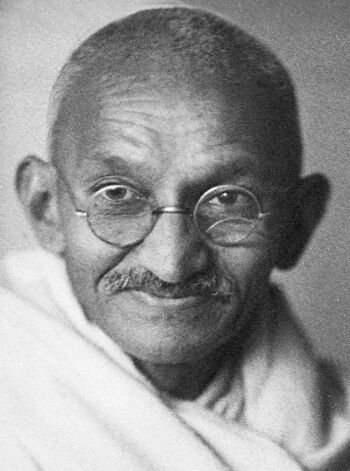
Religion and Branch: Hinduism (with influences from Jainism, Christianity, and other religions)
Title: Spiritual Leader
Mahatma Gandhi, born Mohandas Karamchand Gandhi, is one of the most iconic figures in Indian history. Though primarily known for his role in India's struggle for independence through nonviolent resistance, he was deeply influenced by religion and spirituality.
Gandhi's understanding of Hinduism, especially the concept of ahimsa (non-violence), played a central role in shaping his philosophy and actions. He was also profoundly influenced by Jainism, which further accentuated his belief in non-violence and truth.
While Gandhi's commitment to Hinduism was unwavering, he was a universalist, drawing insights from multiple religions, including Christianity and Islam. He believed in the essential oneness of all religions and worked towards religious harmony. His ideals of peace, brotherhood, and non-violence were rooted in his religious convictions, making him not just a political leader but a spiritual guide for many.
Khwaja Kamal-ud-Din (1870-1932)
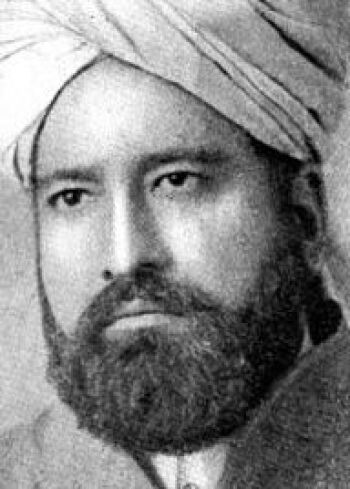
Religion and Branch: Islam (Sunni)
Title: Writer, Educator, Lawyer
Khwaja Kamal-ud-Din was a prominent Indian Muslim lawyer and a leading figure of the Ahmadiyya movement, specifically the Lahore Ahmadiyya Movement. He was born in Punjab, British India, and was initially a devout Sunni Muslim. He later joined the Ahmadiyya movement after coming in contact with its founder, Mirza Ghulam Ahmad.
After the death of Mirza Ghulam Ahmad, the Ahmadiyya community split into two main factions. Kamal-ud-Din became a leading figure in the Lahore Ahmadiyya Movement, which differed from the main Ahmadiyya group in certain theological interpretations. He was a prolific writer and wrote extensively on various Islamic topics, emphasizing the universality of Islamic teachings and advocating for its relevance in the modern world.
Kamal-ud-Din traveled to the West, particularly the UK, to propagate Islam. In 1913, he established the Woking Muslim Mission in Woking, England, using the Shah Jahan Mosque, the oldest mosque in England. He sought to present Islam as a rational and modern faith suitable for the West. In India and abroad, Kamal-ud-Din engaged in interfaith dialogues, especially with Christians. He emphasized shared values and aimed to clear misconceptions about Islam.
Kamal-ud-Din played a pivotal role in the propagation of the Ahmadiyya understanding of Islam and worked towards promoting a version of Islam that he saw as harmonious with modernity and rationality. However, his association with the Ahmadiyya movement makes him a controversial figure among mainstream Muslims, as many do not consider Ahmadis to be Muslims due to their theological beliefs.
Sri Aurobindo (1872-1950)
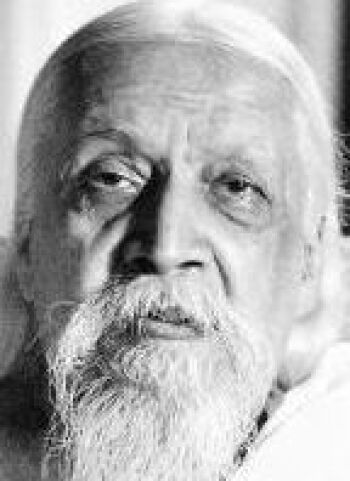
Religion and Branch: Hinduism (Integral Yoga)
Title: Spiritual Guru, Philosopher, Poet
Sri Aurobindo was a philosopher, yogi, guru, poet, and nationalist who played a significant role in the Indian freedom movement against British colonialism. He later turned to the spiritual and philosophical evolution of human consciousness, integrating traditional Indian practices with Western philosophical ideas. His writings, particularly The Life Divine and Savitri, explore the evolution of human life on Earth into a "life divine" through spiritual transformation.
In Pondicherry (now Puducherry), he founded an ashram where he and the spiritual collaborator known as Mirra Alfassa (meaning "The Mother") developed and practiced Integral Yoga. This discipline sought to unite the divine in all aspects of human existence, including in physical matter. Sri Aurobindo's teachings emphasized a divine life on Earth and the evolution of human consciousness to a higher spiritual truth, making him a vital figure in the realm of Indian spirituality and philosophy.
Bhai Vir Singh (1872-1957)
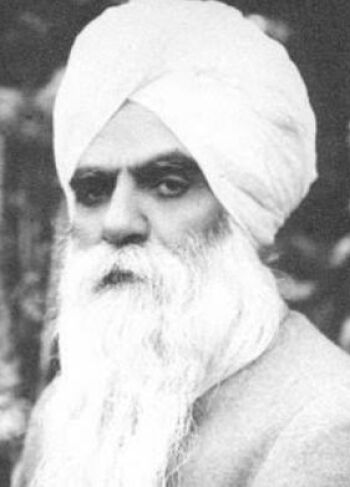
Religion and Branch: Sikhism
Title: Scholar, Theologian, Poet
Bhai Vir Singh is a highly esteemed figure in Sikhism and is often referred to as the Sixth River of Punjab (Punjab being the land of five rivers). His influence on Sikhism and Punjabi literature in India is profound.
Singh played a pivotal role in the Sikh literary renaissance of the early 20th century. His writings, which span poetry, prose, and essays, are marked by a deep spiritual insight into Sikh beliefs and practices. His literary works, such as Rana Surat Singh, have had a profound impact on Punjabi literature.
At a time when Sikhism was experiencing challenges due to colonial rule and the rise of the Arya Samaj movement, Singh's works acted as a revivalist tool. He emphasized the distinct identity, beliefs, and practices of Sikhism, helping to bolster Sikh pride and identity.
Singh was instrumental in establishing institutions to promote Sikhism. He founded the Khalsa Tract Society to disseminate literature about Sikh beliefs and practices. He was a strong proponent of education based on Sikh values and played a role in setting up schools and colleges that followed this philosophy.
Singh's deep-rooted spirituality and commitment to Sikhism have made him a revered figure in the Sikh community. His literary and religious contributions continue to inspire generations of Sikhs and Punjabi writers.
Muhammad Ali Jauhar (1878-1931)
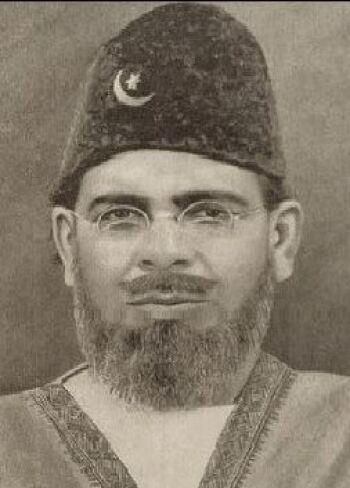
Religion and Branch: Islam
Title: Activist, Writer, Politician, Cofounder of Jamia Millia Islamia
Muhammad Ali Jauhar was a prominent Indian Muslim activist, writer, and politician. He was an important figure in the Indian independence movement against British rule, using his pen and oratory to rouse public sentiment against colonialism. An alumnus of Aligarh Muslim University, he was deeply influenced by the Aligarh Movement, which aimed at modernizing India's Muslim community through English education, while simultaneously preserving its Islamic identity.
Jauhar was one of the leading figures in the Khilafat Movement, which arose in India after World War I. The movement was a reaction from the Muslim community against the disintegration of the Ottoman Empire and the abolition of the Caliphate, the spiritual and temporal leadership of the worldwide Muslim community. Along with his brother Shaukat Ali, he worked to preserve the Ottoman Caliphate and maintain its political and religious authority for Muslims worldwide. The movement eventually merged with the larger Non-Cooperation Movement led by Mahatma Gandhi, representing a unique period of Hindu-Muslim unity against British rule.
Jauhar was a strong proponent of Pan-Islamism, a political movement advocating the unity of Muslims under one Islamic state. He believed in the collective strength of the global Muslim community and its potential to challenge Western colonialism.
Jauhar's journey for Hajj, the Islamic pilgrimage to Mecca, was also significant. During this period, he met various leaders of the Islamic world and discussed the challenges and politics affecting the global Muslim community.
As a writer, Jauhar also contributed to Islamic literature. He edited the English weekly Comrade and later an Urdu daily called Hamdard. Through his writings, he consistently championed the rights of Muslims and emphasized the importance of unity and education in the community.
Jauhar was a pivotal figure in intertwining the religious aspirations of the Indian Muslim community with the broader struggle for India's independence. His efforts underscored the importance of religious identity in the socio-political fabric of colonial India.
Muhammad Ilyas Kandhlawi (1885-1944)
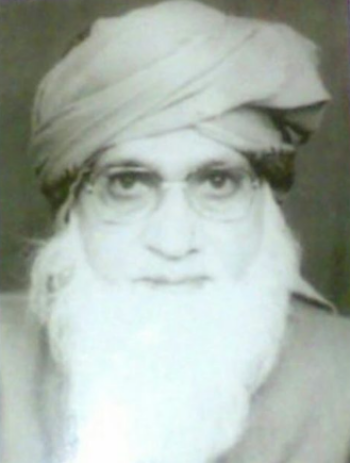
Religion and Branch: Islam (Sunni)
Title: Islamic Scholar, Founder of Tablighi Jamaat
Muhammad Ilyas Kandhlawi is best known as the founder of the Tablighi Jamaat, an Islamic revivalist and proselytizing movement. Born in Kandhla, Uttar Pradesh, into a family of scholars, he was educated in traditional Islamic sciences, studying Hadith (sayings of the Prophet Muhammad) and Islamic jurisprudence among other subjects.
Concerned about the weakened state of Muslim practice and identity in the face of British colonial rule and Hindu majority surroundings, Kandhlawi founded the Tablighi Jamaat in 1927. The movement aimed to revitalize the faith and practice of Muslims, emphasizing the basics of Islam, such as the declaration of faith, prayer, and good character. Under his guidance, it adopted a grassroots approach with members (often called Tablighis) traveling in groups, visiting mosques in various locations, reminding Muslims about their religious duties, and encouraging others to lead lives grounded in Islamic principles.
The Tablighi Jamaat has grown immensely since its inception, becoming one of the largest Islamic movements in the world. Though it began in India, it has branches in many countries, with followers from diverse ethnic and cultural backgrounds. Notably, the movement remained apolitical, focusing purely on individual religious reformation rather than political mobilization or resistance against British colonial rule.
Kandhlawi and the Tablighi Jamaat play a vital role in the religious landscape. The movement has been a force for religious renewal among Muslims, emphasizing a return to fundamental practices and values. It has also been a counterbalance to more political or radical interpretations of Islam, stressing non-confrontational, grassroots spiritual revival.
Sivananda Saraswati (1887-1963)
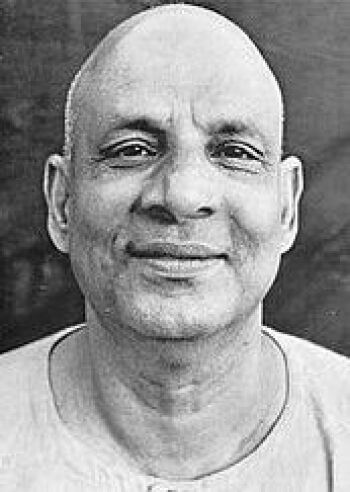
Religion and Branch: Hinduism (Vedanta)
Title: Spiritual Leader, Yoga Guru, Author, Founder of Divine Life Society
Sivananda Saraswati was a renowned Indian spiritual teacher and a proponent of Yoga and Vedanta. He was also a doctor in Malaysia before taking up monasticism. He founded the Divine Life Society in 1936 on the banks of the holy river Ganges in Rishikesh, India.
Swami Sivananda emphasized the importance of a holistic approach to spirituality, integrating the principles of Yoga, Vedanta, and other Indian spiritual disciplines. His teachings promoted the Yoga of Synthesis, which harmonized the four main paths of yoga: Karma (action), Bhakti (devotion), Jnana (knowledge), and Raja (meditation).
As an author, Swami Sivananda was prolific, with more than 200 books on various topics, making spiritual knowledge accessible to the common person. Through his writings, institutions, and disciples, Swami Sivananda's influence on the global yoga movement has been profound.
Abul Kalam Azad (1888-1958)
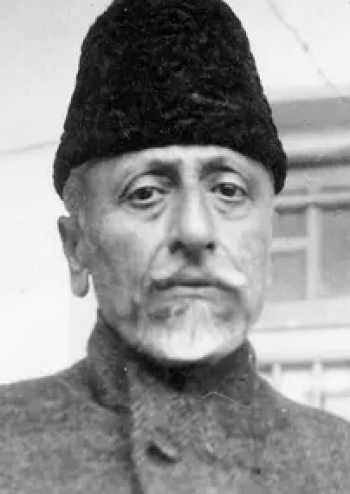
Religion and Branch: Islam (Sunni)
Title: Scholar, Politician, Writer, Activist
Abul Kalam Azad, commonly known as Maulana Azad, was a prominent leader in the Indian independence movement against British rule. As a devout Muslim scholar, he represented the views of millions of Indian Muslims who believed in a united, secular India. His writings and speeches emphasized the compatibility of Islam with modernity and the importance of communal harmony in the Indian subcontinent.
Beyond his role in the independence struggle, Maulana Azad was also a profound thinker and writer. He was well-versed in Islamic theology and classical Islamic sciences. As the first Education Minister of independent India, he laid the foundation for the country's educational policies, emphasizing secularism and inclusivity. Throughout his life, he remained a strong advocate for Hindu-Muslim unity and was a symbol of India's composite cultural heritage.
B. R. Ambedkar (1891-1956)
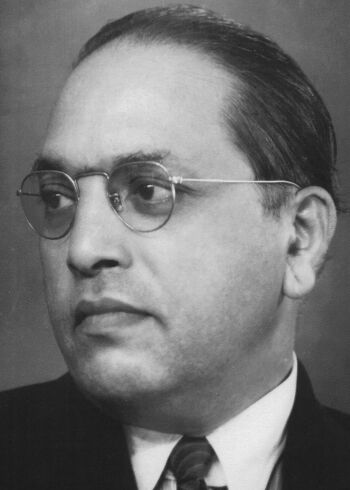
Religion and Branch: Hindu Converted to Buddhism
Title: Politician, Reformer
B. R. Ambedkar, born Bhimrao Ramji Ambedkar, was a jurist, economist, politician, and social reformer who campaigned against the social discrimination faced by the untouchables or Dalits. Born into the untouchable Mahar caste, he faced caste discrimination from an early age but went on to become the principal architect of the Indian Constitution, ensuring it provided for the protection of the rights of minorities and socially disadvantaged groups.
Ambedkar was highly critical of the caste system ingrained within Hindu society, which he felt perpetuated inequality. After extensive research on various religions and after announcing his intent to leave Hinduism, he converted to Buddhism in 1956, shortly before his death, leading half a million Dalits with him. He believed Buddhism to be a more egalitarian and rational choice and saw it as a means to uplift the Dalit community from social oppression.
Jiddu Krishnamurti (1895-1986)
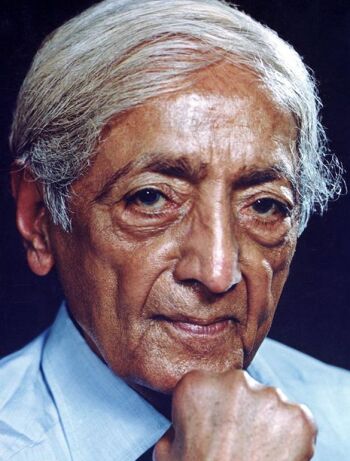
Religion and Branch: Nondenominational (though raised within Theosophy)
Title: Philosopher, Speaker
Jiddu Krishnamurti was a renowned philosopher, speaker, and writer who addressed fundamental existential and spiritual questions. Originally groomed by the Theosophical Society to be a world teacher or the new Maitreya Buddha, Krishnamurti eventually rejected this role and disbanded the organization set up to support his teachings, asserting the necessity of personal discovery without following authority or established dogma.
Throughout his life, Krishnamurti emphasized the importance of self-knowledge, direct experience, and the pitfalls of following any authority in spiritual matters, including himself. He conducted dialogues and lectures globally, not aligned with any particular religion or philosophy, and instead emphasized individual transformation and the understanding of the self. His teachings have left a significant impact, offering a fresh perspective on spirituality that defies categorization.
A. C. Bhaktivedanta Swami Prabhupada (1896-1977)
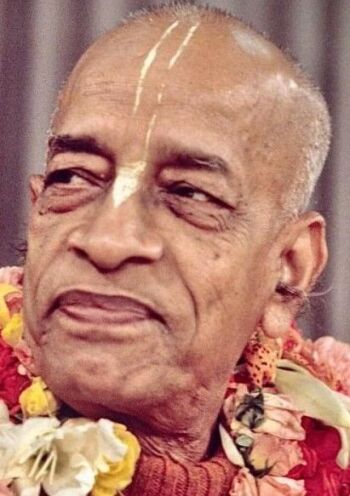
Religion and Branch: Hinduism (Gaudiya Vaishnavism)
Title: Educator, Founder of International Society for Krishna Consciousness (ISKCON)
A. C. Bhaktivedanta Swami Prabhupada was a Gaudiya Vaishnavism teacher and the founder of the International Society for Krishna Consciousness (ISKCON), commonly known as the Hare Krishna movement. Born in Kolkata, India, he took a vow in early life to spread Lord Krishna's teachings in the English-speaking world.
In 1965, at the age of 69, Prabhupada traveled to New York City, where he established ISKCON and started propagating the practice of Bhakti yoga and chanting the Hare Krishna mantra. Under his leadership, the movement expanded globally, with temples, farm communities, and restaurants established worldwide. His emphasis on devotion to Krishna, his prolific writings, and his establishment of the global ISKCON movement left a significant and enduring impact on the spiritual landscape of the 20th century.
Mother Teresa (1910-1997)
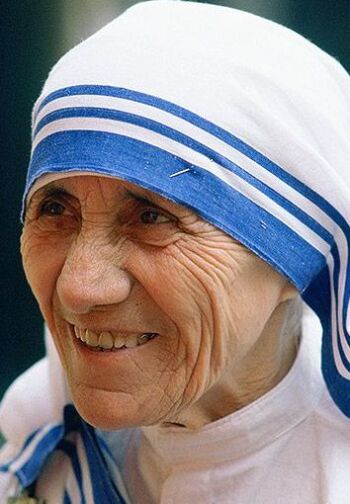
Religion and Branch: Christianity (Catholicism)
Title: Saint Teresa of Calcutta, Missionary, Humanitarian
Mother Teresa, born Agnes Gonxha Bojaxhiu in present-day Skopje, North Macedonia, was an Albanian-Indian Roman Catholic nun and missionary. She arrived in India in 1929 and dedicated her life to caring for the sick, orphaned, and destitute in the slums of Calcutta (now Kolkata). She founded the Missionaries of Charity in 1950, an order that began with a small group of nuns but has since grown to include thousands of followers worldwide, serving the poorest of the poor.
Mother Teresa became an international symbol of charitable work, winning the Nobel Peace Prize in 1979 for her humanitarian efforts. Despite facing criticism and controversy at times, she was canonized as a saint in the Roman Catholic Church in 2016. Throughout her life in India, she emphasized the importance of love, compassion, and selfless service, and she remains one of the most iconic and admired figures in the realm of religious and humanitarian work.
Satchidananda Saraswati (1914-2002)
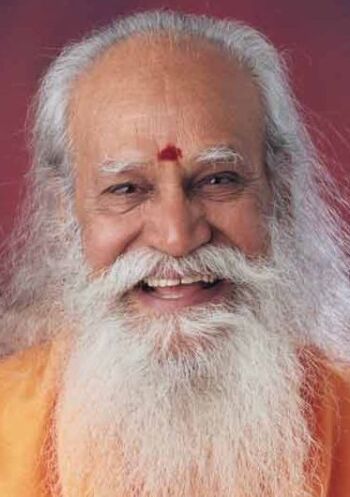
Religion and Branch: Hinduism (Integral Yoga)
Title: Spiritual Leader, Educator, Founder of Integral Yoga International
Satchidananda Saraswati was an esteemed Indian religious teacher and spiritual leader, renowned for his efforts in promoting interfaith harmony and understanding. He founded the Integral Yoga International movement, which combined various branches of yoga into a comprehensive lifestyle system. His teachings emphasized the unity of all religious faiths and the importance of recognizing the spiritual essence shared by all.
In 1966, Swami Satchidananda visited the United States and quickly gained popularity, notably opening the 1969 Woodstock music festival by leading a chant of "Om" to calm the crowd. Through his teachings and establishments, including the Integral Yoga Institute and Satchidananda Ashram–Yogaville, he left a lasting legacy both in India and internationally.
Swami Satchidananda's blend of Eastern spiritual practices and Western culture made him a pioneering figure in bringing yoga and its associated philosophies to the Western world. The Integral Yoga Institute, which he established, has since spread its teachings globally, having branches in various countries and providing classes, training, and resources on this holistic approach to yoga.
Mohammed Burhanuddin (1915-2014)
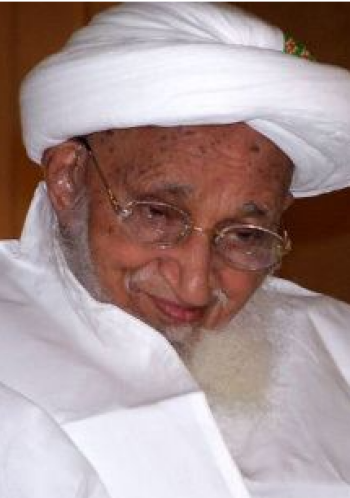
Religion and Branch: Islam (Shia)
Title: Spiritual Leader
Mohammed Burhanuddin was the 52nd Dā'ī al-Mutlaq of Dawoodi Bohras, a sub-sect within Shia Islam. He assumed leadership in 1965 and was the spiritual guide of the community until his passing in 2014.
Under Burhanuddin's leadership, the Dawoodi Bohra community witnessed a remarkable period of revival and growth, with significant emphasis on education, infrastructure development, and religious teachings. His tenure was marked by the construction and restoration of numerous mosques, mausoleums, and institutions, reinforcing the cultural and architectural heritage of the Bohras. His efforts not only strengthened the religious fabric of the community but also sought to foster unity, intellectual growth, and socio-economic upliftment.
Dadi Janki (1916-2020)
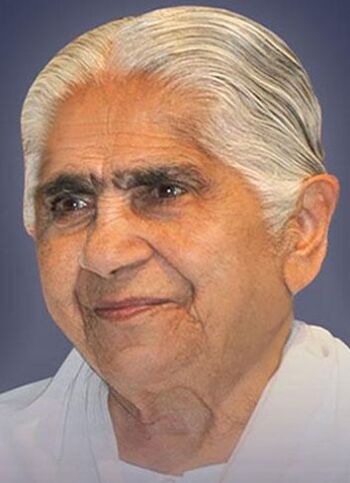
Religion and Branch: Hinduism (Brahma Kumaris)
Title: Spiritual Leader
Dadi Janki was a prominent spiritual leader of the Brahma Kumaris, an international spiritual movement with its roots in Hinduism. Born in Sindh (now in Pakistan), she joined the Brahma Kumaris at a young age and was known for her deep spiritual insights, relentless dedication, and commitment to promoting values-based living.
Throughout her life, Janki traveled extensively around the world, sharing spiritual wisdom and promoting peace, love, and unity. She played a significant role in the global outreach of the Brahma Kumaris and was respected for her clarity of thought and meditative prowess. Her teachings emphasized the importance of purity, peace, and spiritual empowerment, and she remains an inspiration for many within the organization and beyond.
Maharishi Mahesh Yogi (1918-2008)
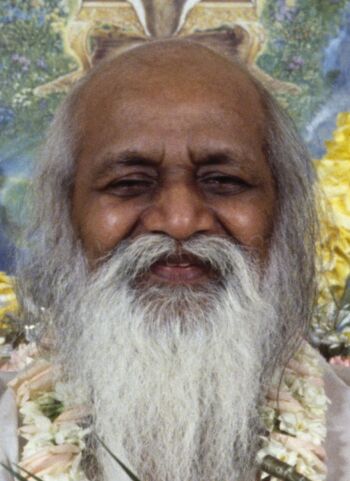
Religion and Branch: Hinduism
Title: Founder of Transcendental Meditation
Maharishi Mahesh Yogi was an Indian spiritual leader and founder of the Transcendental Meditation (TM) movement, a form of silent mantra meditation. Born in Madhya Pradesh, India, he studied physics at Allahabad University before becoming a disciple of Swami Brahmananda Saraswati, a renowned Hindu guru. Although rooted in the Vedic tradition of India, Yogi's teachings embraced a universal approach. He aimed to bridge the gap between ancient spiritual wisdom and modern science.
In the mid-1950s, Yogi introduced the TM technique and its related teachings in India. The method involves silently repeating a specific mantra to facilitate deep relaxation and a unique state of restful alertness. He emphasized the scientific validation of TM. Numerous studies were conducted on the benefits of the technique, including its potential to reduce stress, improve learning, and even foster peace in conflict zones. The 1960s and 1970s saw a surge in the popularity of TM, especially in Western countries. Part of this popularity was due to Yogi's association with famous personalities such as The Beatles.
Beyond TM, the Maharishi's initiatives included the establishment of educational institutions, cities, and an 'ideal society' program. He passed away in 2008 in the Netherlands, leaving behind a global movement that continues to impact millions with its meditation techniques and related teachings.
Yogi played a pivotal role in popularizing Indian meditation techniques on a global scale, especially through the lens of science and modernity. His influence extended far beyond India's borders, making him one of the notable spiritual ambassadors of India in the 20th century.
Acharya Buddharakkhita (1922-2013)
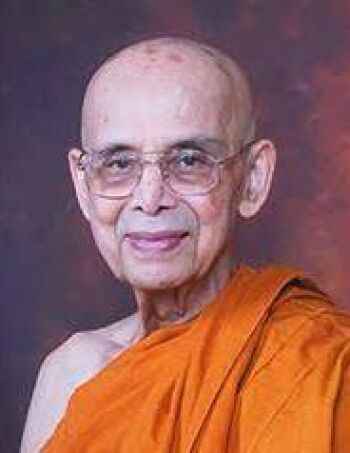
Religion and Branch: Buddhism
Title: Monk, Writer, Founder of Maha Bodhi Society
Acharya Buddharakkhita was a significant figure in the propagation of Buddhism in modern India. Born in Imphal, Manipur, India, he initially served in the British Indian Army before renouncing worldly life and becoming ordained as a Buddhist monk in the Theravada tradition in Sri Lanka in 1948.
In 1956, Buddharakkhita founded the Maha Bodhi Society in Bangalore, which has played a pivotal role in spreading the teachings of the Buddha in southern India. Under his guidance, the society is involved in various humanitarian projects, including the publication of Buddhist literature as well as educational, healthcare, and welfare programs to serve the underprivileged.
Buddharakkhita was a prolific writer. He translated many Pali scriptures into English and authored several books on Buddhism, making the teachings more accessible to a wider audience. He was instrumental in reviving and promoting Buddhism, especially in southern parts of India where Buddhism had diminished over the centuries.
Buddharakkhita played an instrumental role in the resurgence of Buddhism in modern India, particularly in the south. His efforts led to the establishment of multiple institutions, including a hospital, educational institutions, and monastic centers, fostering the growth of the Dhamma in India. Through his teachings, writings, and the institutions he established, he made a lasting impact on the Indian religious landscape.
Swami Satyananda Saraswati (1923-2009)
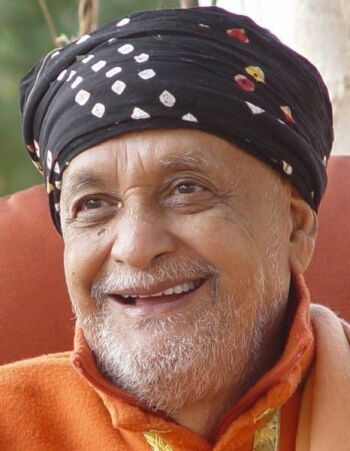
Religion and Branch: Hinduism
Title: Founder of Bihar School of Yoga
Swami Satyananda Saraswati was a significant figure in modern yoga, establishing the Bihar School of Yoga in Munger, India, in 1964. He dedicated his life to the dissemination of the yogic sciences, and his teachings were renowned for seamlessly integrating traditional yogic practices with contemporary physical and mental health needs. His systematic approach to yoga, which combined elements of asanas, pranayama, and meditation, has been foundational in the Bihar Yoga tradition.
Saraswati authored more than 80 books on yoga, tantra, and spirituality. His works, such as Asana Pranayama Mudra Bandha and Kundalini Tantra, are staples for yoga practitioners around the world.
Beyond his written contributions, he also initiated a host of social and spiritual movements to address various societal issues, using yoga as a tool for change. He emphasized the potential of yoga to not only achieve spiritual growth but also to address and overcome physical, mental, and emotional challenges, laying the groundwork for its widespread acceptance and application in diverse fields today.
S. N. Goenka (1924-2013)
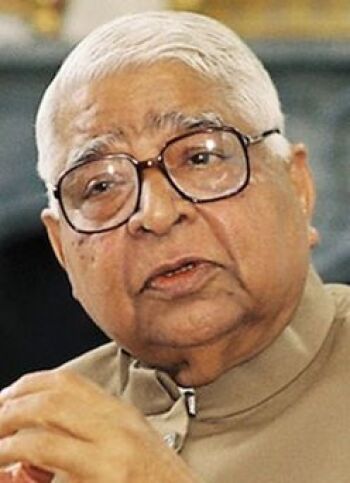
Religion and Branch: Buddhism (Vipassana)
Title: Meditation Teacher
Satya Narayan Goenka, commonly known as S. N. Goenka, played a pivotal role in popularizing the ancient meditation technique of Vipassana, both in India and around the world. Born in Burma to Indian parents, Goenka was initially a successful businessman before he started seeking a solution to his acute migraines. This quest led him to Vipassana meditation under the tutelage of U Ba Khin.
Having deeply benefited from the practice, Goenka felt compelled to share it with others. In 1969, he began teaching Vipassana in India, emphasizing its universal and non-sectarian nature. Over the decades, he established numerous meditation centers worldwide, ensuring that Vipassana remained accessible to all without charge.
Through 10-day courses, Goenka introduced thousands to the technique, emphasizing moral conduct, concentration, and the cultivation of insight. His efforts have left a lasting impact, with Vipassana meditation now being practiced globally by individuals from all walks of life.
Swaroopanand Saraswati (1924-2022)
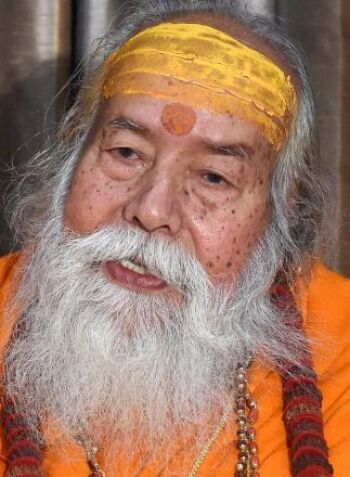
Religion and Branch: Hinduism (Advaita Vedanta)
Title: Shankaracharya
Swami Swaroopanand Saraswati was a renowned Hindu spiritual leader and the Shankaracharya of the Dwarka Sharada Peeth and Jyotir Math, two of the four cardinal mathas or monastic centers established by Adi Shankaracharya. Throughout his life, he was deeply involved in various religious, social, and educational activities, emphasizing the importance of Hindu dharma, values, and practices.
Saraswati was known for his traditional viewpoints on Hinduism and often commented on contemporary issues from a religious perspective. His influence was not just limited to spiritual matters; he actively engaged in socio-political discussions that pertained to the welfare of the Hindu community. Additionally, he played a pivotal role in guiding the VHP (Vishva Hindu Parishad) on issues related to the construction of the Ram Mandir in Ayodhya.
Sathya Sai Baba (1926-2011)
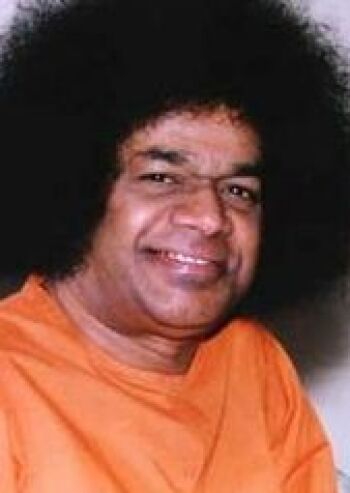
Religion and Branch: Hinduism
Title: Guru, Spiritual Leader
Born Ratnakaram Sathyanarayana Raju, Sathya Sai Baba was a prominent spiritual guru and leader in India. He was believed by his devotees to be a reincarnation of Sai Baba of Shirdi, a revered saint from the late 19th and early 20th centuries. Sathya Sai Baba was renowned for performing miracles, including materializations of vibhuti (holy ash) and other small objects, though these acts were both a source of fascination for followers and skepticism for critics.
Beyond the miracles, Sathya Sai Baba emphasized the universal nature of spirituality, promoting the core teachings of all major world religions. He founded educational institutions, hospitals, and provided various philanthropic services, especially in the fields of health and education. His teachings and humanitarian works continue to inspire millions of followers worldwide, and the Sri Sathya Sai Seva Organizations, which operate in numerous countries, continue his mission of service.
Ramlal Siyag (1926-2017)
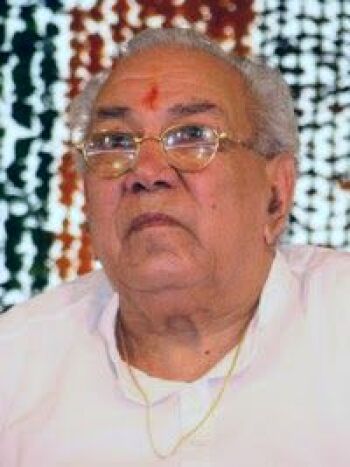
Religion and Branch: Hinduism
Title: Guru, Founder of Adhyatma Vigyan Satsang Kendra
Ramlal Ji Siyag was an Indian spiritual guru and the founder of the Adhyatma Vigyan Satsang Kendra, a spiritual organization based in Jodhpur, Rajasthan. His teachings were rooted in the Indian Vedic tradition, but he emphasized the universal nature of spiritual truths. He believed that all religions lead to the same truth and advocated for religious harmony.
Siyag is known for advocating the practice of Siddha Yoga, a spiritual discipline that aims to awaken the Kundalini energy through meditation. He emphasized that by chanting a specific mantra and meditating, one could awaken this divine energy, leading to spiritual growth and even healing of physical and mental ailments. He considered himself a Siddha guru, meaning he believed he had the power to initiate spiritual seekers into Siddha Yoga, enabling them to have their own direct experience of the divine.
Through the Adhyatma Vigyan Satsang Kendra and other associated organizations, Siyag's teachings reached a wide audience in India and even abroad. He initiated thousands of seekers into Siddha Yoga through Shaktipat, a process believed to transfer spiritual energy from guru to disciple.
Siyag was an influential spiritual figure in India who promoted the practice of Siddha Yoga and emphasized the universal truths present in all religious traditions. His teachings continue to influence many spiritual seekers in India. His emphasis on meditation, Kundalini awakening, and religious harmony remains a guiding principle for his followers.
Vishnudevananda Saraswati (1927-1993)
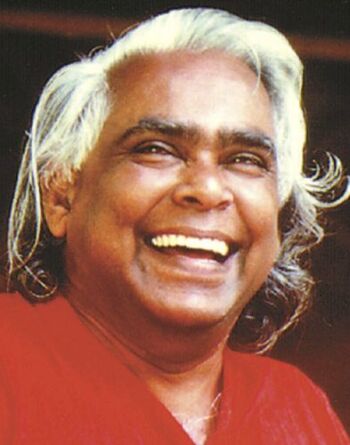
Religion and Branch: Hinduism
Title: Yoga Guru, Author, Founder of International Sivananda Yoga Vedanta Centers
Vishnudevananda Saraswati was a prominent figure in the global spread of yoga and a disciple of the well-known spiritual teacher Swami Sivananda of Rishikesh. Born in Kerala, India, he showed a keen interest in spiritual matters from a young age.
Saraswati met Swami Sivananda in Rishikesh and became one of his chief disciples. Under Sivananda's guidance, he immersed himself in intense yogic practices and study. Following his guru's instructions to take yoga to the West, Saraswati traveled to the United States in the late 1950s. He subsequently founded the International Sivananda Yoga Vedanta Centers, a worldwide network of ashrams and yoga centers that played a pivotal role in popularizing yoga in the West.
In 1960, Saraswati authored The Complete Illustrated Book of Yoga, which became one of the foundational texts on Hatha Yoga for many English-speaking practitioners. He was also known for his peace missions around the world. He piloted a plane decorated with peace symbols to several conflict zones, dropping flowers and leaflets advocating for peace.
Saraswati made significant contributions to the global spread of yoga and its teachings. His influence persists in the many Sivananda Yoga Vedanta Centers around the world that continue to teach yoga based on his teachings. He remains a vital figure in the lineage of modern yoga teachers who have bridged the gap between traditional Indian spiritual practices and the Western world. His emphasis was on the classical yoga tradition, focusing on the holistic benefits of yoga for the body, mind, and spirit.
Avula Parthasarathy (1927 to Present)
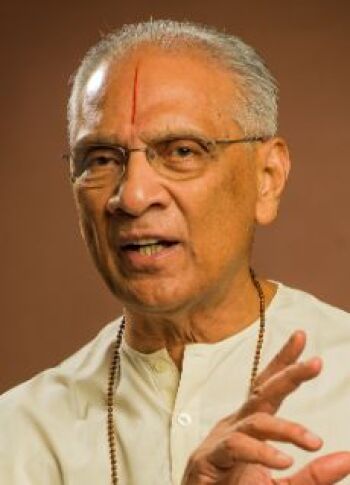
Religion and Branch: Hinduism (Vedanta)
Title: Swami, Philosopher, Founder of Vedanta Academy, Author, Public Speaker
Avula Parthasarathy, popularly known as Swamiji, is a prominent Vedantic scholar and public speaker in India. Born in Chennai, he has multiple degrees in literature, science, and law.
Swami Parthasarathy has dedicated over six decades to the study and propagation of Vedanta, the ancient philosophy of India. Vedanta emphasizes the understanding of the self and the realization of one's potential. He founded the Vedanta Academy near Pune, India, where a full-time, residential course is offered to students, providing a structured exposure to the teachings of Vedanta.
Swami Parthasarathy has authored several books explaining Vedantic concepts in a contemporary style and language. Some of his notable works include commentaries on ancient texts such as the Bhagavad Gita, as well as original works aimed at modern audiences. He also has spoken at various institutions worldwide, including educational, corporate, and public forums. His lectures are aimed at emphasizing the practical application of Vedanta in daily life and personal development.
Swami Parthasarathy emphasizes the need for intellect in understanding and applying spiritual teachings. He often discusses the difference between intellect and intelligence, stressing the importance of the former in leading a balanced and fulfilled life.
Swami Parthasarathy is a prominent figure in the propagation of Vedanta philosophy in contemporary India and across the globe. Through his academy, writings, and lectures, he brings ancient wisdom to modern audiences, emphasizing rational spirituality and personal development.
Osho (1931-1990)
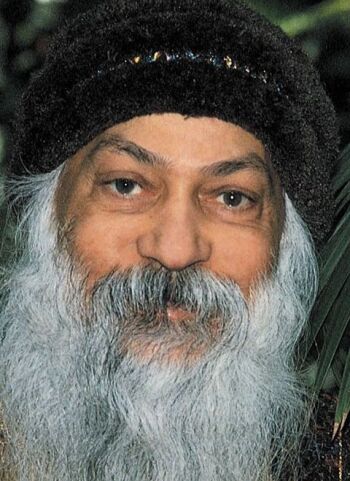
Religion and Branch: Mix of Religions
Title: Spiritual Leader, Founder of Rajneesh Movement
Osho, originally named Rajneesh Chandra Mohan Jain and later also known as Bhagwan Shree Rajneesh, was an Indian spiritual teacher and leader who gained international fame in the 20th century. His teachings blended elements from a variety of religious and philosophical traditions, including Hinduism, Jainism, Buddhism, Taoism, Christianity, and Sufism.
Osho emphasized the importance of meditation, mindfulness, celebration, love, and a strong critique of institutionalized religion and the socio-political establishment. He introduced dynamic meditation, which involves physical activity such as jumping, shouting, and dancing, followed by silence and celebration. It was a departure from the traditional silent and static meditation practices, emphasizing cathartic release as a pathway to inner peace.
He established an ashram in Pune, India, which became a significant attraction for spiritual seekers from around the world. Later, Osho and his followers created a commune in Oregon, USA, known as Rajneeshpuram, which became controversial and faced legal and social conflicts. Osho's candid views on sexuality, his criticism of established religions, and his luxurious lifestyle (notably his collection of Rolls Royce cars) often led to controversy. The Oregon commune faced allegations of illegal activities, and Osho was arrested and deported from the US in the 1980s.
Despite the controversies, Osho's teachings have endured. His books and discourses remain popular worldwide, and the Osho International Meditation Resort in Pune continues to draw thousands of visitors each year. Many of his meditation techniques are practiced globally.
Kanthapuram A. P. Aboobacker Musliyar (1931 to Present)
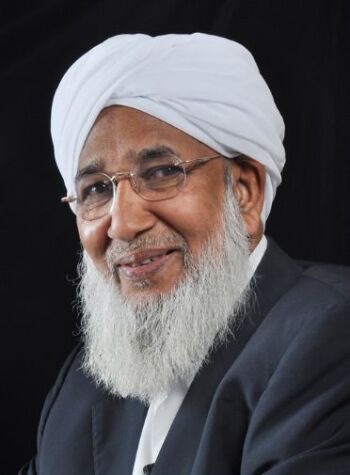
Religion and Branch: Islam (Sunni)
Title: Grand Mufti of India, Writer
Kanthapuram A. P. Aboobacker Musliyar is a prominent Islamic scholar and religious leader in India, particularly in the state of Kerala. He is a key figure in the Sunni Muslim community in Kerala and holds a leading role in the Samastha Kerala Jamiyyathul Ulama, an influential body of Sunni scholars in the state.
Musliyar is known for emphasizing the importance of education. He has been instrumental in the establishment of various educational institutions in Kerala, catering not just to religious education but also to general and higher education. He also has been involved in various charitable activities, including healthcare and disaster relief. He has played a role in setting up hospitals and other welfare institutions in Kerala.
Musliyar is an advocate for interfaith dialogue and promotes peaceful coexistence among different religious groups. He has been part of various initiatives that aim to foster understanding and harmony between different communities.
Musliyar has been vocal against religious extremism and has often emphasized the peaceful teachings of Islam. He has stressed the importance of adhering to the middle path and avoiding extremes in religious interpretations and practices.
Over the years, Musliyar has authored several books on Islamic teachings and has delivered countless lectures, further solidifying his position as a respected religious authority in the region. He is a significant religious figure in Kerala, known for his contributions to education, interfaith dialogue, and charitable activities, in addition to his religious leadership.
Tejomayananda Saraswati (1950 to Present)
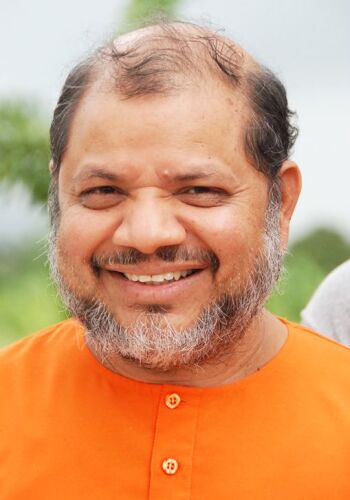
Religion and Branch: Hinduism
Title: Spiritual Leader
Born as Sudhakar Kaitwade, Tejomayananda Saraswati, also known as Pujya Guruji, is a renowned spiritual leader and teacher of Vedanta, the spiritual philosophy underlying Hinduism. He succeeded Swami Chinmayananda, the founder of Chinmaya Mission, and served as the global head of the organization from 1994 to 2017.
Under Guruji's leadership, Chinmaya Mission expanded its global reach and furthered its objective of providing spiritual and cultural education. His teachings emphasize the practical application of spiritual knowledge in daily life. He has authored numerous books, commentaries, and compositions in Sanskrit, and continues to inspire countless individuals through his talks, retreats, and spiritual camps worldwide.
Ravi Shankar (1956 to Present)
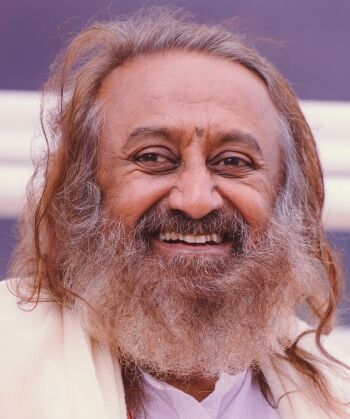
Religion and Branch: Hinduism
Title: Guru, Founder of Art of Living Foundation
Ravi Shankar, often referred to as Sri Sri Ravi Shankar, is an Indian spiritual leader and the founder of the Art of Living Foundation.
Established in 1981, the Art of Living Foundation is an educational and humanitarian organization that operates in 156 countries. It offers a variety of personal development programs based on breathing techniques, meditation, and yoga. The Sudarshan Kriya, a unique breathing technique, is the cornerstone of these programs. Under Shankar's guidance, the foundation has undertaken numerous humanitarian projects, including disaster relief, sustainable rural development, and educational initiatives, among others.
Organized by the Art of Living Foundation, the World Culture Festival is a massive intercultural gathering that celebrates cultural diversity and promotes global peace and harmony. The festival has seen participation from millions over the years.
Shankar has been involved in peace negotiations in various conflict zones around the world, including Colombia, Iraq, and parts of India. He emphasizes dialogue as the key to resolving conflicts and a universal approach to spirituality, drawing from various religious traditions but not adhering strictly to any one religion. His teachings focus on personal development, social responsibility, and inner peace.
Shankar is a prominent spiritual figure in India and globally, known for his emphasis on holistic personal development, peace initiatives, and humanitarian efforts. While rooted in Indian spiritual traditions, his teachings and programs have found a global audience. The Art of Living courses have been conducted in various parts of the world, and he has millions of followers globally.
Tarun Sagar (1967-2018)
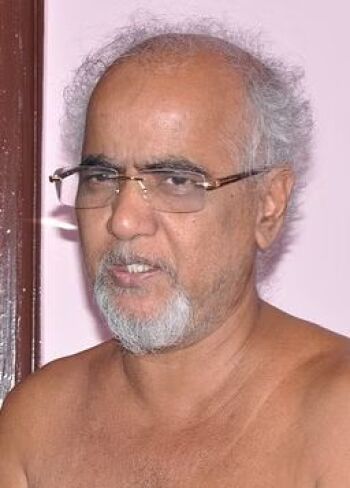
Religion and Branch: Jainism (Digambara)
Title: Jain Monk, Public Speaker
Tarun Sagar was a prominent Jain monk known for his straightforward and candid discourses on various social and moral issues. He belonged to the Digambara sect of Jainism, which is one of the two main sects of Jainism, the other being Svetambara. The Digambara monks are known for their austere practices, including total renunciation, which means they do not wear any clothes as a mark of non-attachment to material possessions.
Sagar was widely recognized for his Kadve Pravachan (meaning "Bitter Discourses"), which was a series of straightforward, candid talks addressing various social, moral, and philosophical issues. These discourses were attended by thousands and were broadcasted on television, reaching a wider audience. His teachings often emphasized moral values, ethics, and the importance of non-violence (Ahimsa). He spoke on a wide range of topics, from personal conduct to national issues, and even commented on matters of governance and politics, albeit from a moral perspective.
Sagar engaged with various political and social leaders throughout his life. His influence was such that many politicians, businessmen, and celebrities sought his guidance and attended his discourses. He also penned several books, further elaborating on his teachings and the principles of Jainism.
Sagar was a leading figure in Jainism in contemporary India, known for his forthright discourses that touched upon a wide array of subjects. His teachings aimed at instilling moral values and ethics in individuals and society at large. He left behind a legacy of teachings and discourses that continue to inspire many followers and admirers.
Copyright © 1993—2025 World Trade Press. All rights reserved.

 India
India